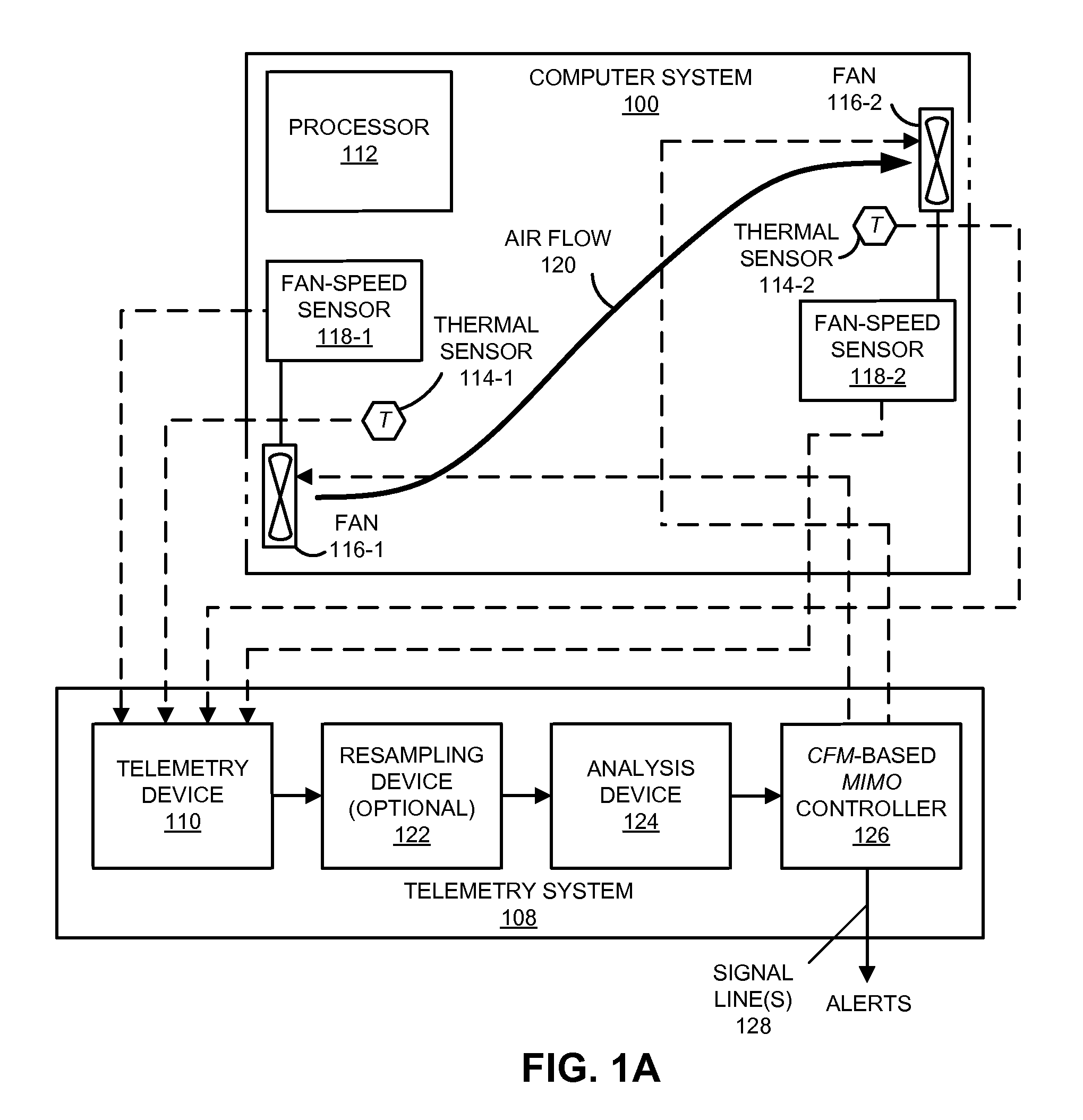Cooling-control technique for use in a computer system
a computer system and control technology, applied in the direction of fire alarms, electrical apparatus casings/cabinets/drawers, instruments, etc., can solve the problems of inability to measure the air flow rate in the computer system, poor reliability of the sensors that directly measure the air flow rate, and frequent recalibration, so as to increase the resolution of temperature measurements
- Summary
- Abstract
- Description
- Claims
- Application Information
AI Technical Summary
Benefits of technology
Problems solved by technology
Method used
Image
Examples
Embodiment Construction
[0031]The following description is presented to enable any person skilled in the art to make and use the disclosure, and is provided in the context of a particular application and its requirements. Various modifications to the disclosed embodiments will be readily apparent to those skilled in the art, and the general principles defined herein may be applied to other embodiments and applications without departing from the spirit and scope of the present disclosure. Thus, the present disclosure is not intended to be limited to the embodiments shown, but is to be accorded the widest scope consistent with the principles and features disclosed herein.
[0032]Embodiments of a computer system, an electronic device in the computer system, a method for providing control signals to a fan in a computer system, and a computer-program product (i.e., software) for use in the computer system are described. During the method, the electronic device receives temperature measurements and a fan-speed mea...
PUM
 Login to View More
Login to View More Abstract
Description
Claims
Application Information
 Login to View More
Login to View More - R&D
- Intellectual Property
- Life Sciences
- Materials
- Tech Scout
- Unparalleled Data Quality
- Higher Quality Content
- 60% Fewer Hallucinations
Browse by: Latest US Patents, China's latest patents, Technical Efficacy Thesaurus, Application Domain, Technology Topic, Popular Technical Reports.
© 2025 PatSnap. All rights reserved.Legal|Privacy policy|Modern Slavery Act Transparency Statement|Sitemap|About US| Contact US: help@patsnap.com



